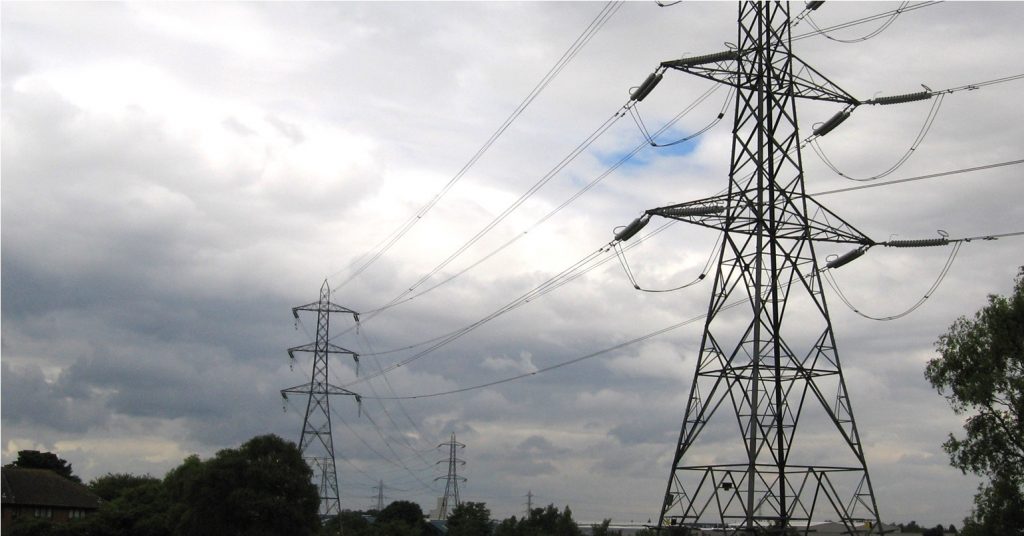Greens need to fall on the right side of the coming pylon wars

Every time I look at the news or social media, I am assailed by stories of angry protests against cycle lanes, bus lanes, solar farms, traffic calming and other small measures to protect human beings and the natural environment. Typically as I write local residents are up in arms and launching a protest movement against a new bus lane on the A4 between Bristol and Bath. Buses might go faster but the idea that they get priority, even though this might actually help other drivers by reducing congestion, is apparently a source of festering hatred.
I don’t remember as a child back in the 1970s hearing about protests to keep lead in petrol or opposition to the phasing out of asbestos but no doubt they occurred. Apparently, there were protest marches against the introduction of breathalysers in the 1960s.
In Germany, the far right Alternative for Deutschland are winning votes on a ticket of scrapping rules for introducing net zero heat pumps. For Richard Tice of the Reform Party, here in the UK, they might as well be called ‘hate pumps’ and he has put opposition to tackling climate change at the heart of his message. Rishi Sunak is rolling back net zero too, with promises to expand North Sea oil extraction.
But could the green movement be the most effective opposition to serious climate change action? Sadly there is a risk that we might be in the vanguard for policies that decimate future generations rather than protecting them.
The pylon wars are beginning and could be the most important factor in stopping renewables and keeping us on the fossil fuel treadmill.
Renewable energy has virtually no marginal costs. This means once solar panels or wind turbines have been built, they cost very little to generate energy. To run a fossil fuel based power station, fossil fuels like gas or coal have to be bought, in contrast the wind and sun are free. Set up costs are significant for renewable energy but once built, running costs are a fraction of old fashioned power stations.
The fossil fuel lobby is always looking for new reasons to attack renewables. In the US, Trump supporters have suddenly become lovers of wildlife and claim off shore wind turbines harm whales. Cost is identified but the distinction between substantial set up costs and virtually zero marginal costs is usually ignored by the anti-net zero lobby.
This leaves the problem of intermittency: the wind doesn’t always blow, and the sun doesn’t always shine. A fair point but one that can be overcome. Storage in the form of batteries is advancing fast but, above all, connecting electricity supplies nationally and internationally is a huge help. The further that energy can be drawn from, the less the problem is.
This needs pylons. People don’t like pylons. Any energy source has draw backs, but fossil fuels have to be phased out as quickly as possible – climate change is here, the weather is becoming more extreme, and the quicker we stop burning fossil fuels the better. It is after all a climate emergency. Low and often zero marginal costs from renewables promise a future of potentially very, very cheap energy.
The point is that this will require new electricity infrastructure. The more people object to this, the slower its introduction will be, and given the necessity to stop burning natural gas and coal, the more damage will be done. The National Grid suggests: “over the next seven years, five times as many transmission lines — via overhead pylons or (a more expensive option) underground cables — will need to be built than in the past three decades combined. […] Crucially, the new overhead lines making this possible will often be strung across picturesque countryside locations.”
A green movement that objects to energy infrastructure might look like a movement protecting local communities and wildlife habitats but the more such objections slow the energy transition the worse the effects will be of climate change.
A pro-pylon Green Party would no doubt lose votes, at least in some rural areas, but an anti-pylon Green Party could be the most potent reason that Britain’s transition to a low or zero carbon economy doesn’t occurs. The machinations of Sunak, the retreats of Starmer on green commitments and the advocacy of coal on the part of the Reform Party are all dismaying but a green movement focused on resisting energy infrastructure could be even more devastating. We all know there is a special place in hell for politicians who object to solar farms and other renewable projects. But perhaps the hottest part might be reserved for those who seek to slow pylons and other forms of electricity transmission, they keep us on course for a burning world.
Derek Wall is a former Principal Speaker of the Green Party of England and Wales. His latest book is ‘Climate Strike: The Practical Politics of the Climate Crisis’ from Merlin Press.
Image credit: Stuart – Creative Commons




Leave a Reply